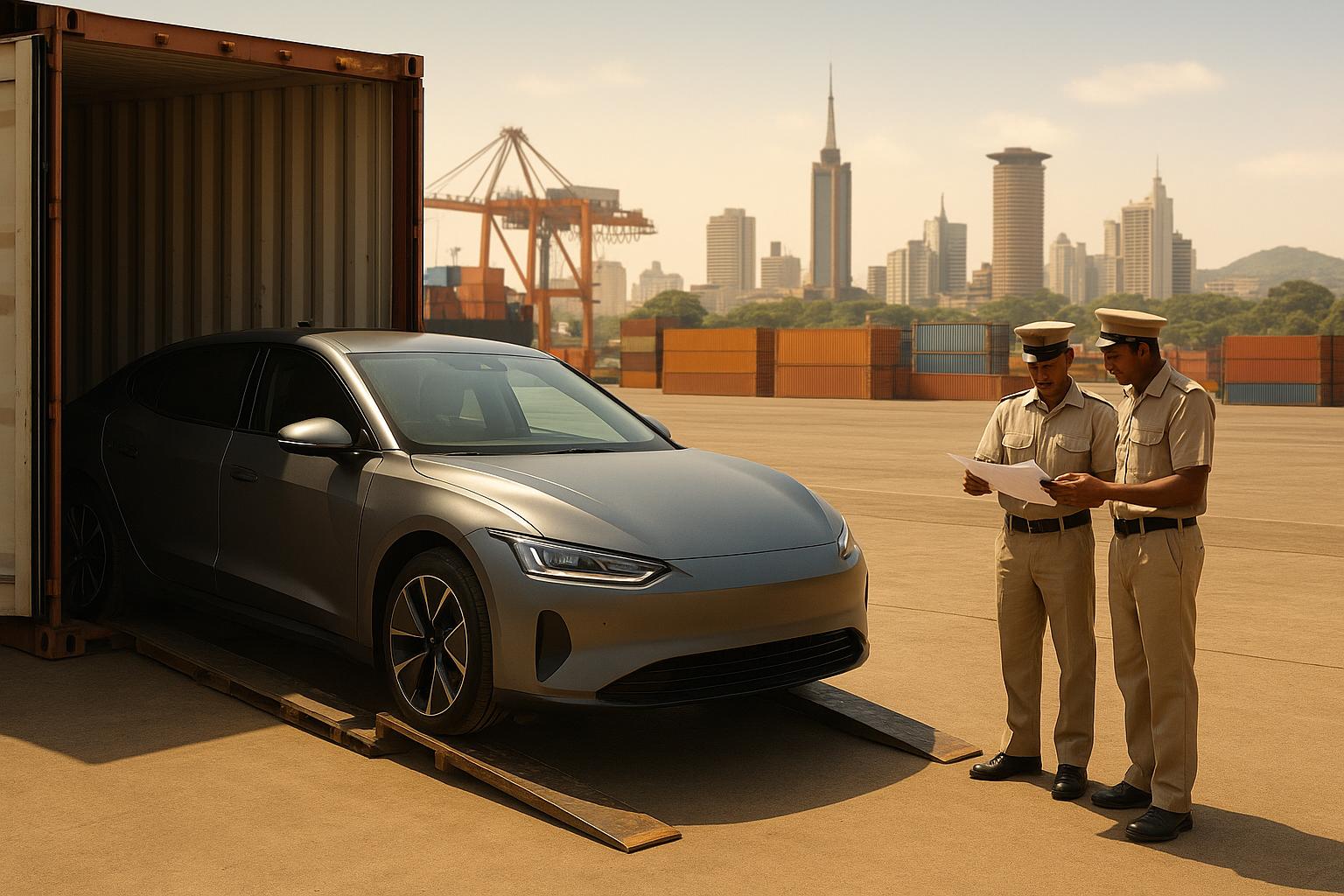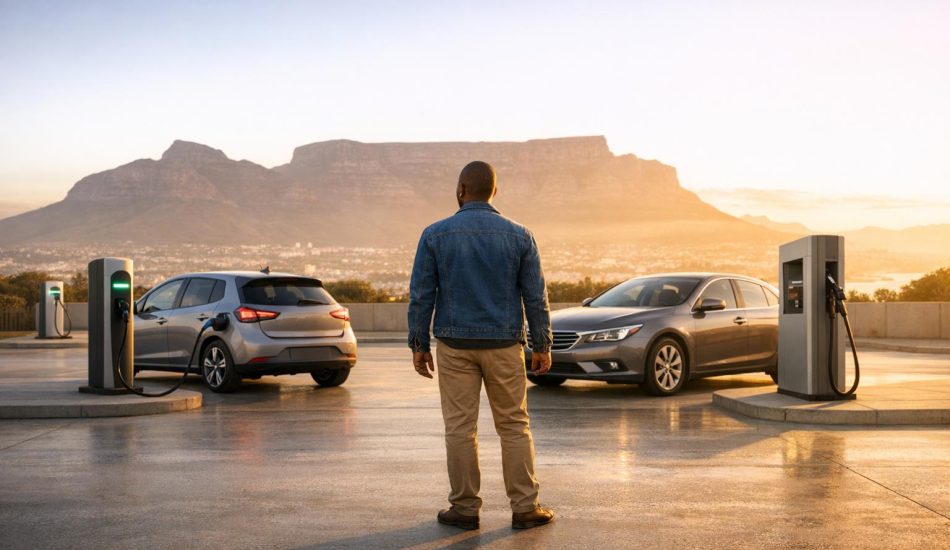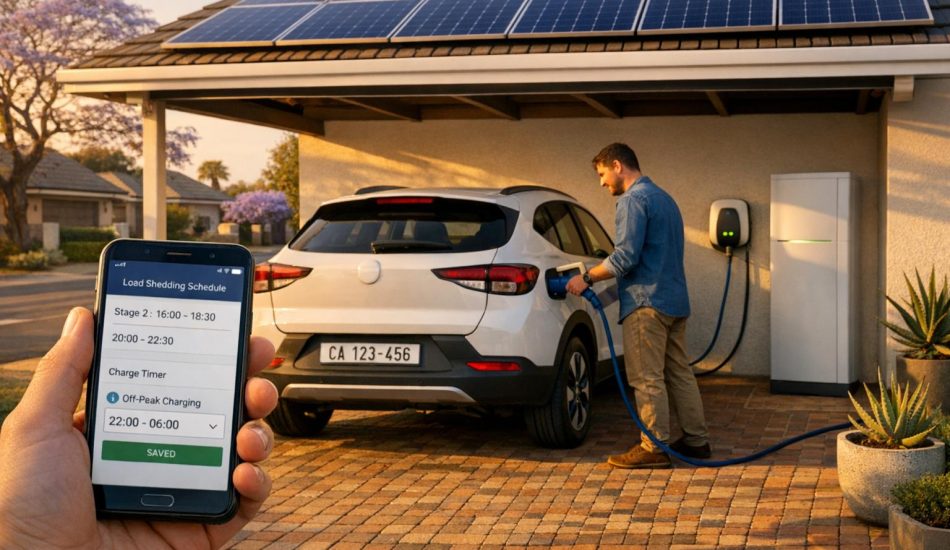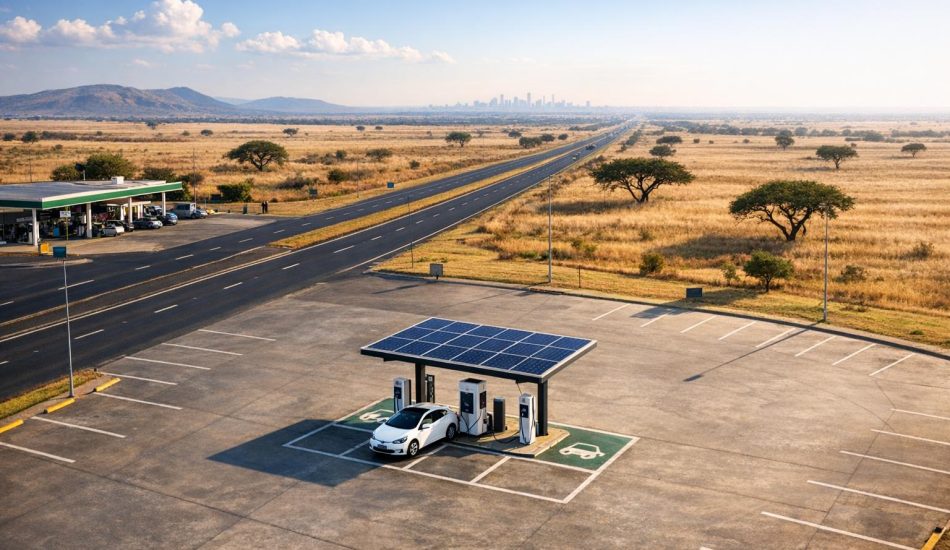
Importing an electric car to Kenya in 2025 can be a straightforward process if you know the rules, taxes, and required documents. Here’s what you need to know:
Key Steps:
- Vehicle Eligibility: Must be less than 8 years old and right-hand drive. Battery capacity must be at least 80%.
- Pre-Export Inspection: Conducted by KEBS-approved agents to ensure compliance with Kenyan standards.
- Taxes & Fees: Import duty (25%), VAT (14%), excise duty (10%), plus additional levies like RDL (2%) and IDF (3.5%).
- Required Documents: Original logbook, export certificate, bill of lading, import declaration form (IDF), and proof of tax payment.
Example Cost Breakdown: For a $25,000 EV:
- Import Duty: $6,250
- Excise Duty: $2,500
- VAT: $4,725
- Additional Levies: $1,375
- Total Import Cost: $39,850 (including vehicle value).
Tips:
- Work with experienced clearing agents to simplify the process.
- Verify the vehicle’s customs value with KRA beforehand to avoid surprises.
- Ensure all required documents are complete and accurate to prevent delays.
Chinese EVs You Can Buy in Kenya – Africa EV Show
Import Rules for Electric Cars in Kenya
Kenya has put in place specific guidelines for importing electric vehicles (EVs) to ensure they meet safety and quality standards. Whether you’re bringing in a single car or a fleet for commercial purposes, these rules apply across the board.
Vehicle Age and Drive Requirements
To qualify for import, electric vehicles must be less than eight years old from their initial registration date. For example, if you’re importing a vehicle in 2025, it must have been first registered in 2017 or later.
Additionally, used EVs must conform to Right-Hand Drive specifications and retain at least 80% of their original battery capacity, a requirement effective from February 19, 2024. This ensures that imported EVs not only meet road compatibility standards but also maintain acceptable performance levels.
Pre-Export Verification and Certification
Before shipping, vehicles must undergo an inspection by a KEBS-appointed agent as part of the PVOC Program. This process results in a Certificate of Conformity and a Pre-export Certificate, confirming the vehicle meets Kenyan standards.
The vehicle must also adhere to Legal Notice No. 78 of July 15, 2005, which outlines the Verification of Conformity to Kenya Standards Imports Order, 2005, and comply with KS1515:2000, Kenya’s standard for road vehicle inspection. These regulations cover both emission and safety standards, ensuring all imported EVs are suitable for Kenyan roads.
Port Inspection and Compliance
Once the vehicle arrives at the Port of Mombasa, it undergoes another round of inspection by KEBS officials to confirm it still meets the required standards. This step ensures the vehicle’s condition matches the pre-export documentation and that it has not deteriorated during transit.
For customs clearance, all pre-export documents must be readily available. The National Transport and Safety Authority (NTSA) also conducts checks to verify the EV’s compliance with local road safety requirements before registration.
These thorough inspections and compliance measures ensure that imported electric vehicles are safe, reliable, and ready for long-term use on Kenyan roads.
Taxes and Fees for Electric Vehicle Imports
Planning to import an electric vehicle into Kenya? Understanding the tax and fee structure is key to budgeting effectively. Kenya imposes several taxes and fees that can significantly increase your total import cost. Let’s break down these components so you can prepare for the full expense.
Import Duty and Value Added Tax (VAT)
The import duty for electric vehicles is set at 25% of the customs value. This customs value is determined by the Kenya Revenue Authority (KRA) and typically includes the vehicle’s purchase price, shipping costs, and insurance.
On top of that, there’s the Value Added Tax (VAT), which is charged at 14%. However, VAT is calculated cumulatively – it applies to the combined total of the customs value, import duty, and excise duty.
For example, if your electric vehicle has a customs value of $20,000, the import duty alone would be $5,000.
Excise Duty and Additional Levies
Electric vehicles enjoy a reduced excise duty of 10%, a nod to Kenya’s efforts to promote cleaner transportation. This duty is applied to the customs value of the vehicle.
In addition to the major taxes, there are other levies to account for:
- Railway Development Levy (RDL): Set at 2% of the customs value, this fee supports Kenya’s railway infrastructure.
- Import Declaration Fee (IDF): Charged at 3.5% of the customs value.
For a $20,000 vehicle, these additional levies would amount to $1,100 ($400 for RDL and $700 for IDF).
How to Calculate Total Import Costs
Let’s walk through an example using a Tesla Model 3 with a customs value of $25,000 to see how the taxes and fees add up.
- Import Duty
Import duty = $25,000 × 25% = $6,250 - Excise Duty
Excise duty = $25,000 × 10% = $2,500 - VAT
VAT base = Customs value + Import duty + Excise duty
VAT base = $25,000 + $6,250 + $2,500 = $33,750
VAT = $33,750 × 14% = $4,725 - Additional Levies
- Railway Development Levy = $25,000 × 2% = $500
- Import Declaration Fee = $25,000 × 3.5% = $875
Total Taxes and Fees Breakdown:
- Import duty: $6,250
- Excise duty: $2,500
- VAT: $4,725
- RDL: $500
- IDF: $875
- Total taxes and fees: $14,850
Final Import Cost:
- Vehicle customs value: $25,000
- Total taxes and fees: $14,850
- Grand total: $39,850
This example shows that taxes and fees can add nearly 60% to the vehicle’s original value. Since VAT is calculated on top of other duties, the overall cost can escalate quickly. Proper planning is essential to avoid surprises during the import process.
Required Documents for Importing Electric Vehicles
Getting the paperwork right is crucial when importing electric vehicles. Missing even one document can cause delays, hefty fines, or even outright rejection at Kenyan ports. Both the Kenya Bureau of Standards (KEBS) and the Kenya Revenue Authority (KRA) have specific requirements for documentation at various stages of the import process.
Pre-Export and Compliance Documents
Before shipping your electric vehicle, ensure you have these documents in hand:
The Pre-Export Verification of Conformity (PVOC) program requires a pre-shipment inspection for all electric vehicles entering Kenya. This inspection confirms that the vehicle meets Kenyan safety and environmental standards.
A Certificate of Conformity (COC), issued by a KEBS-approved agent, is another must-have. This document verifies that your vehicle complies with Kenya’s technical and regulatory standards.
You’ll also need a pre-shipment inspection certificate, often called the certificate of roadworthiness. This document is issued by a KEBS-appointed inspection agent in the vehicle’s country of origin and covers everything from electrical systems to safety features specific to electric vehicles.
The original logbook (or vehicle title) from the country of origin must be canceled before shipment. This canceled logbook is required by Kenya’s National Transport and Safety Authority (NTSA) to issue a new Kenyan logbook for your vehicle.
Lastly, include your commercial invoice (or vehicle purchase invoice). This document is essential for customs clearance and helps KRA calculate the taxes owed.
Having these documents ready ensures a smoother customs process when your vehicle arrives in Kenya.
Shipping and Customs Documents
Once your vehicle reaches the Port of Mombasa, you’ll need the following paperwork:
The original bill of lading is critical. Issued by the shipping company, it serves as proof that your vehicle was received for transport.
The Import Declaration Form (IDF) is required to officially declare your vehicle to Kenyan customs. This form provides details about your imported vehicle, such as its specifications and value.
For individual importers, a copy of your PIN certificate is needed, while companies must provide their Certificate of Incorporation. These documents confirm your legal status as an importer in Kenya.
Here’s a quick summary of the essential shipping documents:
| Document Type | Purpose | Required By |
|---|---|---|
| Original Bill of Lading | Proof of cargo receipt and shipment | Customs |
| Import Declaration Form (IDF) | Declaration of imported goods | Customs |
| Commercial Invoice | Purchase details and value verification | Customs & KRA |
| PIN Certificate/Certificate of Incorporation | Legal status verification | Customs |
Once these documents are in order, move on to verifying and paying the required taxes.
Proof of Tax Payment
Paying taxes is a critical step in the customs process. You’ll need to provide official bank slips as proof that all duties and levies have been paid. Your licensed clearing agent will give you a payment slip for the applicable taxes. You must then make the payment at a designated bank and provide the agent with the bank’s confirmation slip.
Tax payment receipts are mandatory during customs clearance at the Port of Mombasa. Keep all payment records safe, as they serve as proof of compliance with Kenyan import regulations.
While your clearing agent will guide you through the process, the responsibility for accurate record-keeping lies with you as the importer. Ensuring all your documents and payments are in order will pave the way for a seamless customs clearance and vehicle registration experience.
Importing an electric vehicle (EV) to Kenya involves navigating three key phases, each with its own set of requirements to ensure a smooth process.
Pre-Shipment Preparation
Start by choosing the right EV and supplier. Pick a model that suits Kenyan road and climate conditions. While both left-hand and right-hand drive vehicles are allowed in Kenya, right-hand drive models are better suited for local traffic patterns.
Make sure the EV you select is less than 8 years old from its first registration date. For example, if you’re importing in 2025, the vehicle must have been manufactured in 2018 or later. Before making your purchase, request a video inspection of the battery certificate and warranty terms to verify their validity.
You’ll also need to secure a Certificate of Conformity (COC) and Pre-Export Verification of Conformity (PVOC) through an agent approved by the Kenya Bureau of Standards (KEBS) before shipping the vehicle. Without a valid COC, your vehicle could face penalties or even be denied entry at the port. Additionally, arrange a pre-shipment roadworthiness inspection with a KEBS-appointed agent in the export country to confirm compliance with Kenya Standards (KS1515:2000). Cancel the original logbook as per the National Transport and Safety Authority (NTSA) regulations. Obtain a Proforma Invoice to estimate taxes early, and ensure all documentation aligns with Kenyan import standards.
Once the pre-shipment steps are complete, the focus shifts to handling the vehicle’s arrival at the port.
sbb-itb-99e19e3
Arrival and Inspection at Port
When your EV arrives at the Port of Mombasa, work closely with your clearing agent to submit all necessary documentation to port authorities. These documents include the original bill of lading, the Import Declaration Form (IDF), and your pre-shipment certificates. At this stage, port officials will inspect the vehicle to confirm that the documentation matches the vehicle and that it complies with Kenyan standards, as demonstrated by your pre-shipment certificates. Any inconsistencies between the documentation and the vehicle can lead to delays. If additional inspections are required, your clearing agent will coordinate with customs officials to ensure they are completed promptly.
Customs Clearance and Registration
After the port inspection, the process moves to customs clearance. Taxes and duties are calculated based on the assessed value of the vehicle. Once the taxes are verified and paid, customs will release the EV, allowing your clearing agent to complete the remaining paperwork.
To register the vehicle with NTSA, you’ll need to submit the canceled foreign logbook, tax payment receipts, and the Certificate of Conformity. NTSA will then issue Kenyan number plates and a new local logbook. Be sure to keep detailed records of all transactions for future reference and compliance purposes.
Tips for a Smooth Import Process
Here’s how to avoid common pitfalls and delays when importing an electric vehicle.
Work with Reliable Import Partners
The right import partner can save you from unnecessary headaches. Experienced logistics firms know how to navigate Kenya’s import regulations, inspections, and battery certifications. Look for partners with a strong track record in handling electric vehicle imports, especially those familiar with Kenya Bureau of Standards (KEBS) requirements. They should also manage pre-shipment compliance, like obtaining the Certificate of Conformity (COC), to ensure your vehicle is ready for clearance upon arrival.
Before committing, confirm your import partner has specific experience with electric vehicles. Ask for references from past clients and ensure they can handle specialized tasks, such as verifying battery health documentation and adhering to established standards. Taking these steps early on can prevent unnecessary complications later.
Verify Customs Value in Advance
One essential step is confirming the Current Retail Selling Price (CRSP) with the Kenya Revenue Authority (KRA) before starting the import process. This value determines your import duties, VAT, and excise taxes. For instance, the CRSP for a Nissan Leaf is about KSh 4,810,550 (approximately $31,000 USD). Contacting the KRA directly to verify the CRSP for your specific vehicle model and year is crucial. Skipping this step can lead to unexpected costs and delays, so it’s worth the effort to ensure accuracy upfront.
Use Online Platforms for Support
Online platforms can simplify the import process by offering real-time updates and expert assistance. For example, EV24.africa provides transparent pricing, expert guidance, and reliable shipping options, making the process much easier.
These platforms often feature pre-vetted vehicle inventories with verified battery health and compliance documentation. They also provide clear pricing without hidden fees and offer shipping options like RoRo (roll-on/roll-off) or container shipping. Whether you prefer port-to-port or door-to-door delivery, these tools can help you plan every detail.
Starting the process early, keeping thorough records, and double-checking all documentation requirements will go a long way in ensuring a smooth and timely import experience.
Conclusion and Key Takeaways
Bringing an electric vehicle into Kenya in 2025 demands careful planning and strict adherence to the country’s import regulations. The foundation of a smooth process lies in meeting Kenya’s import rules and tax obligations right from the start.
Make sure your vehicle is accompanied by all necessary documents, including the Certificate of Conformity (COC) issued by a KEBS-approved agent and the Pre-Export Verification of Conformity (PVOC). Missing or incomplete documentation can lead to hefty fines or even denial of entry at Kenyan ports. Additionally, keep in mind that used vehicles must be less than 8 years old, as older models are not allowed into the country. Following these rules not only ensures a seamless entry process but also protects your investment.
Another crucial step is accurately calculating import duties, VAT, excise taxes, and other levies to avoid any surprise costs. Before initiating the import process, it’s wise to confirm the Current Retail Selling Price (CRSP) with the Kenya Revenue Authority (KRA), as this value will determine your total tax liability.
Partnering with experienced import professionals can significantly simplify the process. Services like EV24.africa specialize in guiding first-time importers through sourcing, customs clearance, and documentation, offering both expertise and transparency. With the right support and preparation, transitioning to sustainable mobility in Kenya becomes much more manageable.
Starting early, keeping your paperwork in order, and working with knowledgeable professionals can make the entire import process far less daunting. This diligence not only ensures a smoother experience but also contributes to Kenya’s growing embrace of electric vehicles and cleaner transportation solutions.
FAQs
What are the advantages of importing an electric vehicle to Kenya instead of buying one locally in 2025?
Importing an electric vehicle (EV) to Kenya in 2025 comes with several perks worth considering. One major benefit is the reduced import duty and VAT rates offered by the Kenyan government. These tax incentives are part of a broader push to promote EV adoption, potentially making imported models more budget-friendly than those available locally.
Another advantage is the ability to explore a wider variety of EV models and features that might not yet be available in Kenya. This means you can select a car that perfectly matches your needs and preferences. If you handle the import process wisely, you could save money while gaining access to some of the latest EV technology.
What steps should I take to ensure my electric car meets Kenya’s import and inspection requirements?
To successfully import your electric car into Kenya while meeting all inspection and regulatory requirements, here’s what you need to do:
- Make sure the vehicle is right-hand drive and no older than 8 years.
- Check that the battery has at least 80% functionality.
- Secure a Certificate of Conformity (CoC) from a Kenya Bureau of Standards (KEBS)-approved agent.
- Conduct a pre-shipment inspection to ensure compliance with Kenyan standards.
Accurate and complete documentation is essential. Double-check that all necessary paperwork meets the specified requirements to avoid unnecessary delays and ensure a hassle-free import process.
How can I avoid unexpected costs when importing an electric vehicle to Kenya?
To keep costs in check, make sure the electric vehicle (EV) you’re importing aligns with Kenya’s regulations. The vehicle must be right-hand drive, less than 8 years old, and maintain at least 80% battery capacity. Double-check these specifics before buying to avoid fines or having the car turned away at customs.
It’s also wise to partner with a dependable clearing agent who can navigate the customs process and ensure all your paperwork is accurate and complete. On the bright side, Kenya offers 0% import duty on EVs, a perk that can help you save a significant amount. Careful preparation and attention to these details can make the entire import process easier and more affordable.




